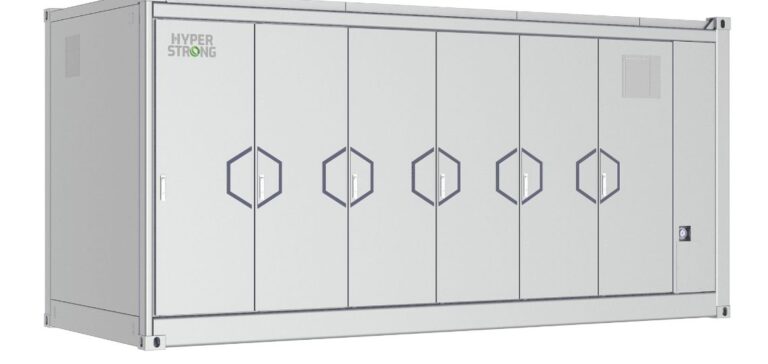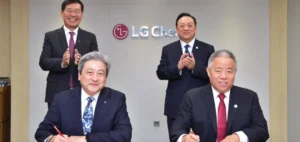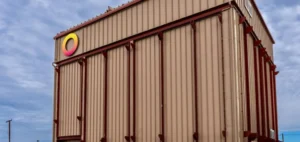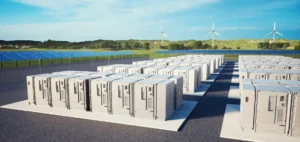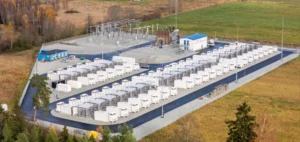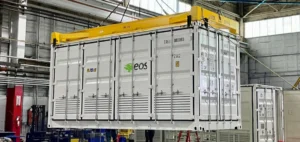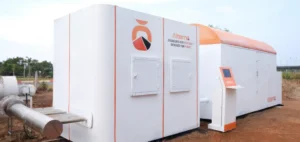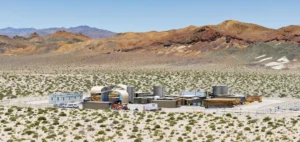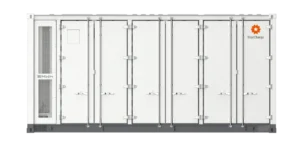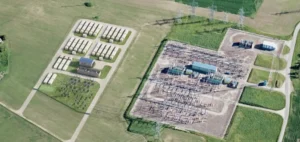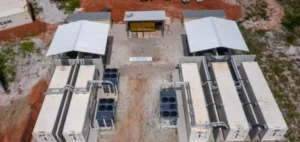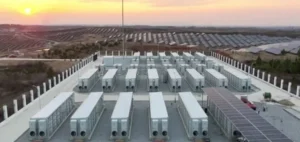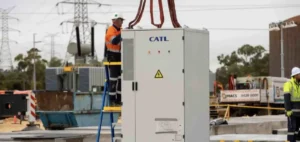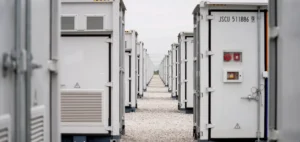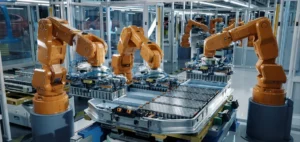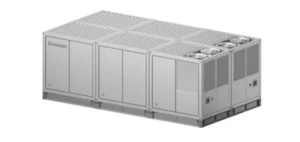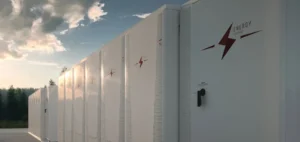Chinese group HyperStrong, specialised in energy storage systems, introduced its new HyperBlock M platform during the smarter E Europe 2025 exhibition in Munich. This launch marks a shift in large-scale storage solutions, focused on integration flexibility, operational safety, and logistical simplification for international clients.
A compact design for optimised deployment
Unlike industry standards, HyperBlock M adopts a ten-foot container format instead of the usual twenty-foot units. This configuration lowers transport costs and facilitates deployment in areas with limited infrastructure, notably in the Middle East, Africa and parts of the Asia-Pacific region. HyperStrong claims this design helps avoid regulatory constraints linked to oversized equipment.
The system is designed to function either as a standalone solution or to support applications such as peak shaving, frequency regulation, or renewable energy integration. It can be configured as a DC-only version for direct integration by engineering firms or as a turnkey AC-integrated solution with internal or external transformers.
Integrated technology and remote supervision
HyperBlock M features a 400kW inverter (Power Conversion System, or PCS) and a real-time monitoring interface, enabling the tracking of discharge capacity, round-trip efficiency, and battery state of health. Its modular architecture also allows for side-by-side or back-to-back installation, maximising land use efficiency.
The platform includes a top-mounted thermal management system, front-facing airflow, and simplified maintenance interfaces. Each unit can be connected to a web dashboard or mobile application, delivering real-time alerts and predictive maintenance via the HyperGenie voice assistant, available in multiple languages.
Operational optimisation and downtime reduction
Among the hardware innovations, HyperStrong introduces a semi-automated battery module replacement system. This mechanism enables one-hour replacement of modules weighing over one tonne, limiting manual handling and associated risks.
HyperStrong relied on more than 200 case studies and around 50 expert models to develop the platform’s cell balancing algorithms and thermal management. These technologies aim to ensure long-term operational stability, with particular focus on preventing thermal runaway and ensuring service continuity.
Matthew Yang, Senior Product Manager at HyperStrong, stated that “customers plan for decades ahead, and HyperBlock M provides the visibility and reliability they need to scale with confidence.”


